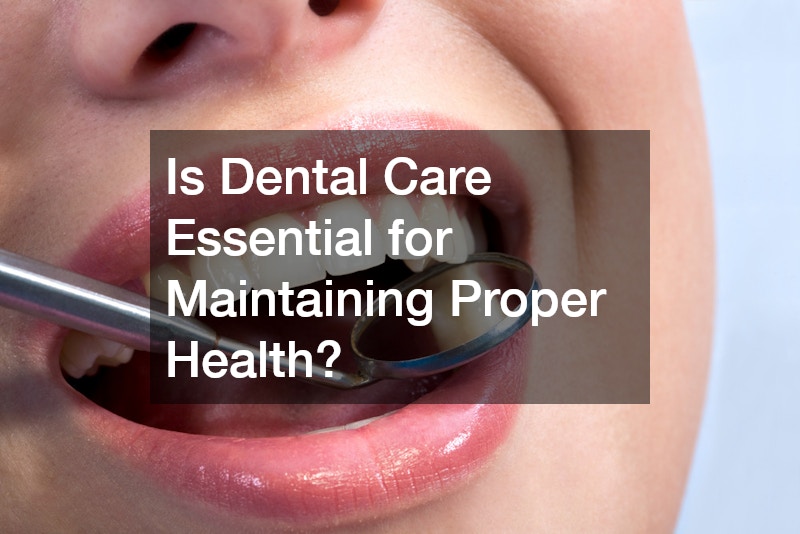
Understanding what your insurance should cover to ensure you maintain proper health is crucial for preventing unexpected medical bills and ensuring access to necessary healthcare services. This article will explore key aspects of health insurance coverage that contribute to maintaining proper health, ranging from preventive care to specialist access. By comprehensively examining these areas, we can better understand how to navigate insurance options effectively.
1. Why is Preventive Care Important for Maintaining Proper Health?
a. Definition and Benefits of Preventive Care
Preventive care encompasses services aimed at preventing illnesses or detecting them early, significantly improving health outcomes. By focusing on preventive measures, individuals can maintain their health and avoid complications that arise from untreated conditions.
b. Common Preventive Services Covered by Insurance
Most health insurance plans cover a variety of preventive services, including annual physical exams, vaccinations, screenings for chronic diseases, and counseling for lifestyle changes. Coverage often extends to dental care, where preventive visits can help avoid more serious health issues later on.
c. How Preventive Care Reduces Long-term Healthcare Costs
Investing in preventive care can lead to substantial long-term savings. For example, regular visits to the dentist can prevent expensive treatments for tooth decay or gum disease. Similarly, regular screenings can catch conditions like back and neck pain or cardiovascular issues before they escalate, reducing overall healthcare expenses.
2. How Does Access to Regular Health Screenings Influence Proper Health?
a. Importance of Regular Screenings
Regular health screenings are vital for monitoring one’s health status and identifying potential issues early. These screenings can range from cholesterol tests to checks for diabetes, all of which can provide critical information for maintaining proper health.
b. Types of Screenings Typically Covered by Insurance
Health insurance typically covers screenings such as mammograms, colonoscopies, and blood pressure checks. Additionally, many plans now include mental health screenings, acknowledging the importance of mental well-being in overall health.
c. Impact of Screenings on Early Detection and Treatment
Early detection through regular screenings can lead to more effective treatment options. For example, catching signs of chronic back and neck pain early can lead to timely interventions that improve quality of life and reduce long-term healthcare costs.

3. What Role Do Vaccinations Play in Maintaining Proper Health?
a. Overview of Essential Vaccinations
Vaccinations play a crucial role in preventing diseases. Essential vaccinations include those for influenza, pneumonia, and hepatitis, among others. Keeping up with vaccinations protects not only the individual but also the community by preventing outbreaks.
b. Vaccinations Coverage by Most Health Insurance Plans
Most health insurance plans cover recommended vaccinations at no additional cost to the insured. This ensures that individuals can receive necessary shots without financial burden, promoting overall public health.
c. Long-term Health Benefits of Staying Vaccinated
Staying current with vaccinations helps prevent potentially serious health conditions, leading to fewer hospital visits and reduced healthcare costs. The peace of mind that comes with knowing you are protected is invaluable for maintaining proper health.
4. Should Mental Health Services be Included to Maintain Proper Health?
a. Recognizing Mental Health as a Component of Proper Health
Mental health is an integral part of overall health, impacting emotional, psychological, and social well-being. Recognizing this connection is crucial in framing healthcare coverage that addresses all aspects of health.
b. Coverage for Therapy and Counseling Services
Insurance plans increasingly include coverage for therapy and counseling services, acknowledging the growing recognition of mental health’s importance. Access to mental health professionals can provide essential support for conditions like anxiety and depression.
c. Insurance and Access to Psychiatric Medications
Coverage for psychiatric medications is also critical. With appropriate insurance, individuals can access medications that help manage mental health conditions, thus supporting overall well-being.
5. How do Prescription Drugs Fit into Maintaining Proper Health?
a. The Impact of Medication Adherence on Health
Adhering to prescribed medication regimens is vital for maintaining health. This is particularly true for chronic conditions that require ongoing management through medications.
b. Typical Drug Formulary and Insurance Coverage
Most health insurance plans have a drug formulary that outlines which medications are covered. Understanding this formulary is essential for accessing necessary treatments without incurring exorbitant out-of-pocket costs.
c. Navigating Drug Pricing and Insurance Support
Navigating drug pricing can be complex. Insurance plans often provide support programs to help individuals afford necessary medications, ensuring that financial barriers do not impede proper health maintenance.

6. Is Dental Care Essential for Maintaining Proper Health?
a. Connection Between Dental Health and Overall Health
Dental health is closely linked to overall health. Conditions such as gum disease can lead to more severe health issues, including heart disease and diabetes, making dental care a crucial component of health maintenance.
b. Common Dental Services Covered by Insurance
Many health insurance plans cover essential dental services, including cleanings, exams, and some procedures like fillings and extractions. This coverage helps ensure that individuals can maintain their dental health.
c. Preventive Dental Care and Its Cost-efficiency
Preventive dental care, such as regular check-ups, is cost-efficient in the long run. Investing in routine visits can prevent more serious, costly procedures down the line, exemplified by the potential need for treatments like dental implants or orthodontic care, including invisalign.
7. Why is Vision Coverage Vital for Proper Health Maintenance?
a. The Link Between Vision Health and General Well-being
Vision health is integral to overall well-being. Good eyesight is essential for daily activities, and vision problems can lead to complications in other areas of health.
b. Typical Vision Services Covered by Health Insurance
Most health insurance plans offer coverage for eye exams, glasses, and contact lenses. Some plans even include coverage for necessary procedures like cataract surgery, ensuring comprehensive eye care.
c. Early Detection of Vision Issues and Coverage Benefits
Early detection of vision issues through regular eye exams can prevent significant complications. Insurance coverage for these services ensures that individuals can access necessary care without financial strain.
8. Are Alternative Therapies Covered in Health Insurance for Proper Health?
a. Types of Alternative Therapies and Their Benefits
Alternative therapies, such as acupuncture and chiropractic care, can provide additional benefits for managing conditions like back and neck pain. Many individuals find these therapies complement traditional medical approaches.
b. Insurance Coverage for Chiropractic and Acupuncture
Some health insurance plans include coverage for chiropractic and acupuncture services, reflecting a growing acceptance of alternative therapies in mainstream healthcare. This inclusion allows individuals to explore various treatment options.
c. Balancing Traditional and Alternative Health Practices
Balancing traditional and alternative health practices can enhance overall well-being. Insurance coverage that accommodates both approaches fosters a holistic view of health.
9. How Does Emergency Care Coverage Affect Proper Health Maintenance?
a. Key Emergency Services Covered by Insurance
Emergency care coverage is crucial for maintaining health during unforeseen circumstances. Most insurance plans cover services such as emergency room visits and ambulance transport.
b. The Importance of Immediate Care Access
Immediate access to emergency care can be life-saving. Having insurance that covers these services ensures individuals can receive necessary treatment without delay, which is critical in emergency situations.
c. Managing Emergency Care Costs with Insurance
Understanding how insurance manages emergency care costs can alleviate financial worries. Many plans have copayments or deductibles associated with emergency services, which can help individuals budget for unforeseen healthcare needs.

10. Why is Access to Specialists Important for Proper Health?
a. The Role of Specialists in Comprehensive Health Care
Specialists play a vital role in comprehensive healthcare, providing expertise in specific areas. This is particularly important for conditions that require specialized knowledge, such as dental issues addressed by an orthodontist or cosmetic treatments like dermal fillers and face lifts.
b. Specialist Services Usually Covered by Insurance
Most health insurance plans cover visits to specialists, like with hearing aids, although some may require referrals from primary care providers. This coverage is essential for individuals needing advanced care.
c. Direct Access vs. Referral Requirements in Insurance Plans
Understanding the differences between insurance plans regarding direct access to specialists versus referral requirements is crucial. Some individuals may prefer plans that allow direct access to specialists, facilitating timely care.
11. How Important Is Maternity and Newborn Care Coverage?
a. Understanding Maternity Care Services
Maternity care is a critical component of health insurance that supports women before, during, and after childbirth. Comprehensive maternity coverage typically includes prenatal visits, labor and delivery services, and postpartum care. Access to these services is essential for ensuring the health of both mother and baby.
b. Coverage for Newborn Care
In addition to maternity services, newborn care is crucial. Health insurance should cover well-baby visits, immunizations, and any necessary treatments. This early care is vital for monitoring the infant’s development and addressing any health issues promptly, which can prevent long-term complications.
c. Benefits of Comprehensive Maternity and Newborn Coverage
Having robust maternity and newborn coverage reduces financial stress and promotes healthier outcomes for both mothers and infants. This coverage supports regular check-ups and interventions that can lead to early detection of potential health issues, ultimately improving the quality of care.
12. The Importance of Coverage for Rehabilitation Services
a. Understanding Rehabilitation Services
Rehabilitation services, including physical, occupational, and speech therapy, are essential for recovery from injuries, surgeries, or chronic conditions. These services help patients regain functionality and improve their quality of life.
b. Common Rehabilitation Services Covered by Insurance
Most health insurance plans cover various rehabilitation services, particularly when they are deemed medically necessary. This can include therapy for back and neck pain, post-operative care, or rehabilitation following strokes or other serious health events.
c. Long-term Benefits of Rehabilitation Coverage
Access to rehabilitation services through insurance can significantly enhance recovery times and outcomes. By ensuring coverage for these services, individuals can return to their daily activities more quickly and effectively, which can improve overall well-being.
13. The Role of Chronic Disease Management in Health Coverage
a. Importance of Chronic Disease Management
Chronic diseases such as diabetes, hypertension, and asthma require ongoing management to prevent complications. Health insurance should provide coverage for regular check-ups, medications, and educational resources to help individuals manage their conditions effectively.
b. Types of Services Typically Covered
Insurance plans often cover a range of chronic disease management services, including consultations with specialists, necessary medications, and routine screenings. This may also extend to programs offered by local weight loss clinics, which can assist in managing obesity-related conditions.
c. Impact on Long-term Health Outcomes
Effective chronic disease management through comprehensive insurance coverage can lead to better health outcomes and a higher quality of life. By addressing chronic conditions early and consistently, individuals can reduce the risk of severe complications and related healthcare costs in the future.

14. The Impact of Aging on Health Insurance Needs
a. Understanding the Health Needs of Older Adults
As individuals age, their health needs often change, necessitating adjustments in health insurance coverage. Older adults may face an increased risk of chronic conditions such as heart disease, arthritis, and cognitive decline, making comprehensive coverage crucial for maintaining quality of life.
b. Coverage for Geriatric Services and Memory Care
Health insurance should include coverage for geriatric services that cater specifically to the elderly. This may encompass routine health screenings, medications, and specialized care, such as memory care for those with conditions like Alzheimer’s disease. Access to these services ensures that older adults receive the support they need to manage their health effectively.
c. Importance of Planning for Aging-related Health Costs
Planning for the potential healthcare costs associated with aging is essential. Insurance that adequately covers the needs of older adults can alleviate financial burdens and promote better health outcomes. By anticipating these needs, individuals can choose insurance plans that provide comprehensive coverage for their changing health requirements.
15. Evaluating Coverage for Specialized Procedures and Treatments
a. The Need for Specialized Care
Certain health conditions may require specialized treatments or procedures, such as cosmetic surgery (e.g., face lifts), dental treatments (like invisalign), or dermatological procedures (such as dermal fillers). Understanding whether these treatments are covered by insurance is important for managing both health and aesthetic needs.
b. Coverage for Advanced Medical Procedures
Health insurance should ideally cover medically necessary specialized procedures that address specific health issues. This might include surgeries related to orthopedic conditions, rehabilitation services for back and neck pain, or treatments for chronic pain relief. Knowing which advanced procedures are covered can help individuals plan for necessary treatments without facing unexpected costs.
c. Balancing Health and Aesthetic Needs
Insurance that recognizes the importance of both health and aesthetic treatments allows individuals to maintain their well-being while also addressing their self-image. Balancing these aspects is essential, as feeling good about one’s appearance can positively impact mental health. By evaluating insurance options that cover both essential and elective services, individuals can achieve a more holistic approach to their overall health.
Conclusion
Ensuring that your health insurance adequately covers services essential for maintaining proper health is fundamental for long-term well-being. By understanding the various aspects outlined in this article, individuals can make informed decisions about their health insurance plans to support continuous and comprehensive care. From preventive measures to specialist access, comprehensive coverage is crucial for maintaining overall health, effectively managing conditions, and preventing future complications. Ultimately, taking the time to evaluate your insurance options can lead to better health outcomes and a healthier future.


